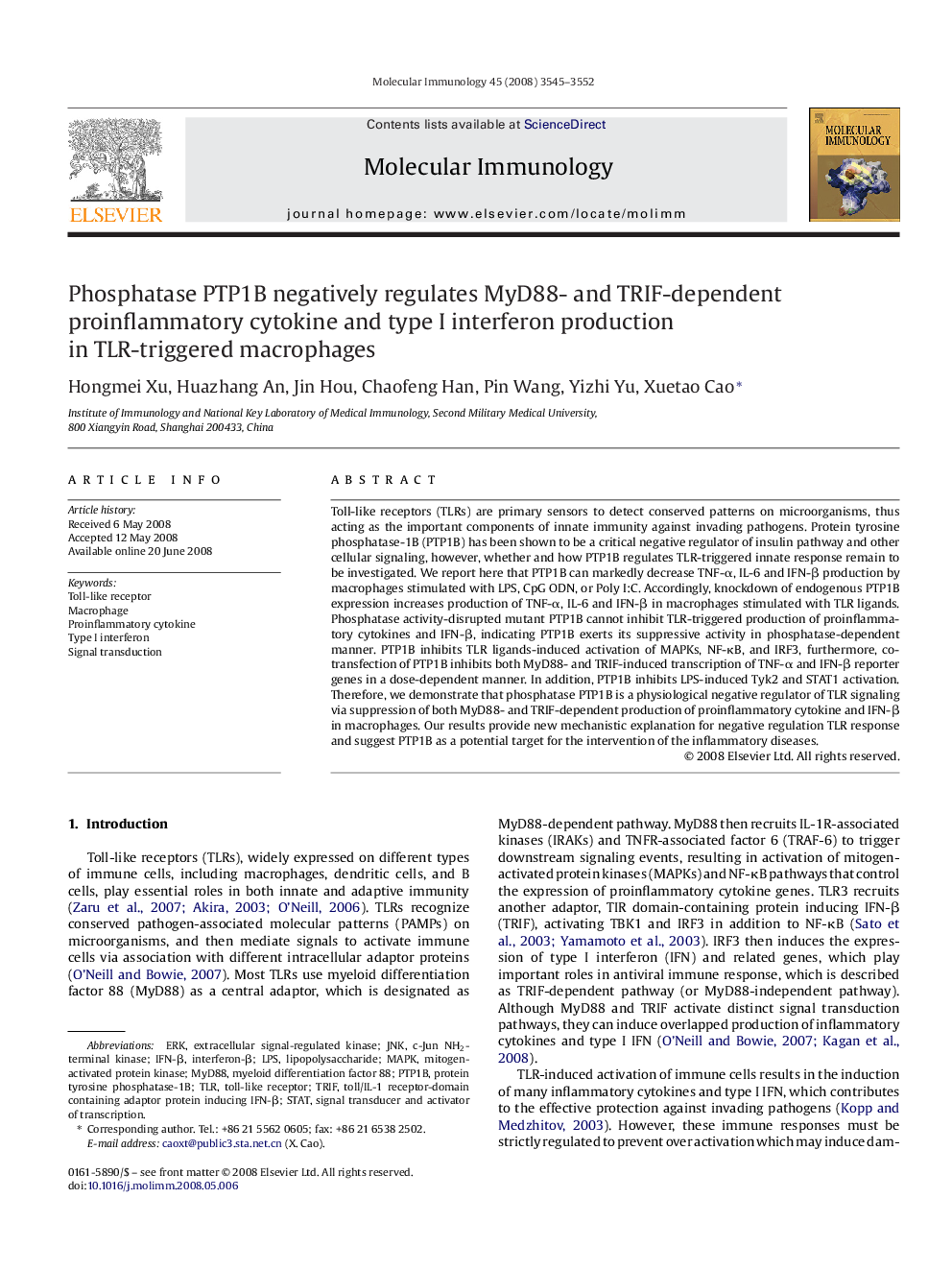| Article ID | Journal | Published Year | Pages | File Type |
|---|---|---|---|---|
| 2831701 | Molecular Immunology | 2008 | 8 Pages |
Toll-like receptors (TLRs) are primary sensors to detect conserved patterns on microorganisms, thus acting as the important components of innate immunity against invading pathogens. Protein tyrosine phosphatase-1B (PTP1B) has been shown to be a critical negative regulator of insulin pathway and other cellular signaling, however, whether and how PTP1B regulates TLR-triggered innate response remain to be investigated. We report here that PTP1B can markedly decrease TNF-α, IL-6 and IFN-β production by macrophages stimulated with LPS, CpG ODN, or Poly I:C. Accordingly, knockdown of endogenous PTP1B expression increases production of TNF-α, IL-6 and IFN-β in macrophages stimulated with TLR ligands. Phosphatase activity-disrupted mutant PTP1B cannot inhibit TLR-triggered production of proinflammatory cytokines and IFN-β, indicating PTP1B exerts its suppressive activity in phosphatase-dependent manner. PTP1B inhibits TLR ligands-induced activation of MAPKs, NF-κB, and IRF3, furthermore, co-transfection of PTP1B inhibits both MyD88- and TRIF-induced transcription of TNF-α and IFN-β reporter genes in a dose-dependent manner. In addition, PTP1B inhibits LPS-induced Tyk2 and STAT1 activation. Therefore, we demonstrate that phosphatase PTP1B is a physiological negative regulator of TLR signaling via suppression of both MyD88- and TRIF-dependent production of proinflammatory cytokine and IFN-β in macrophages. Our results provide new mechanistic explanation for negative regulation TLR response and suggest PTP1B as a potential target for the intervention of the inflammatory diseases.
